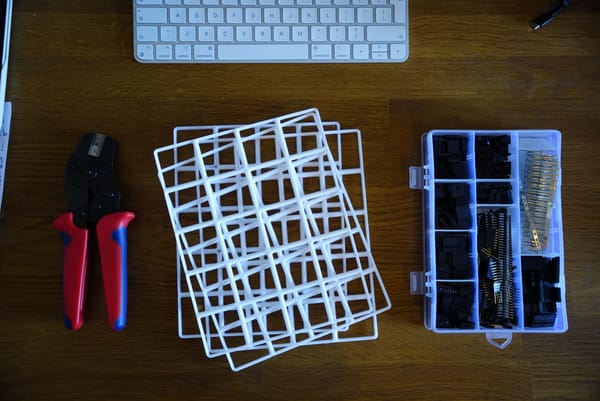Your problem is your mentor

I've been a friend of problems my whole life, especially those small annoyances that we are most likely to put up with for longer than necessary. I smile in the face of those, they add a certain degree of excitement and playful meaning.
If I can credit a behaviour with most of my success in consulting and business, is my general attitude towards problems. I share this insight with all my students.
Become a friction-sensitive
As you go about your day, there are many frictions that you naturally encounter. You have to lower your threshold and become sensitive towards them (not enough to be devastated by them, but annoyed enough to start looking for better ways of doing things).
Don't think this has to be big. In fact, it's useful to start small.
E.g. the steps it takes to put new bin bags in, or get breakfast ready, or prepare your bags for travel, or clean the house, or get into your emails each morning, or keep your laptop charged.
Live your day with a critical eye towards non-value-add/ repetitive tasks that could be optimised out without compromising (and often enhancing) the overall experience.
Before you know it, you'll become a master at spotting frictions.
Why this is useful?
First, because it exercises a muscle that is supremely useful in any professional career - your eye towards spotting inefficiencies. Even being able to just articulate what could be better will get you further than just doing things as they have always been done.
Second, because it orients you on a path towards fixing the small things. You and I have attention for actions and decisions each day - this is a precious resource that you want preserved for those things that matter most. Once you get to fix most of the annoying small things, you'll be free to jump straight into those things that will truly make a difference.
But detecting inefficiencies is not enough though...
Imagine outcomes
"How might I/ could I fix this?" is the question to ask yourself.
Perhaps by repositioning the bin bags from all the way in that corner, to this shelf right over the bings. Perhaps there's a shelf I could design for the bags to stay actually attached
Allow yourself to visualise different options, even if you see they're outside of your
- scope
- budget
- skillset
The point is to extend your reach and pool of available solutions. By always stretching the imagination beyond what you deem to be possible, you may surprise yourself - sometimes, the best options lay just outside of where you normally are trained to look.
Now, after you feel like you have a good set (1-5 minutes should be enough!), you'll need to pick something. What do you do, now that you have some options to minimise or remove an annoyance from your future?
The cost-benefit of fixing small things, and the benefit of action
Having identified a problem and reflected on possible solutions doesn't mean that you have to do anything. In fact, allow yourself the option to do nothing (especially when the problem is too small and the solutions are too complicated).
It is useful to think through (at a high level) what are the costs and benefits of action vs inaction.
Costs of action will typically be dependent on the solutions you're looking at, and a function of:
- materials
- time + effort
- opportunity cost (what else might I use my time on instead of fixing this)
- ongoing costs/ maintenance
Costs of inaction will typically be:
- (Scale of annoyance) x (frequency of annoyance)
The Benefit of inaction is also straight forward:
- Avoiding the cost of action
However, the Benefit of action is not just:
- Avoiding the costs of inaction (which is removing/ reducing the friction - no small payoff, and this compounds!)
The benefit of action is much deeper than that.
First, the way you treat small things likely translates in the way you treat big things as well. All the attention to detail, steps to achieve a solution, visualisation, logical deconstruction of a problem, all of it applies well to big issues.
Second, acting on small problems gives you the perfect permission to play and learn. You really don't want to figure out mechatronics while delivering a project for an aerospace client. But this goes a step further - you may not even figure out that you could do/ you could enjoy doing the jobs further down the path, unless you start walking it.
Small issues are perfect for that. This is how I learnt about IT architecture and servers - because I wanted to self-host services that would otherwise cost me a fortune to run in the Cloud. It started as a small annoyance, that blossomed into a fully integrated set of skills - and these skills are directly useful in my daily job!
In fact, just the other day, the Head of Architecture at a client asked me if I was coming at her as the Lead Architecture of the programme. She was surprised to tell her I'm actually the Programme Director (and I sure she would have been even more surprised if I told her my training regiment, involving a lot of tinkering with old hardware, open software, in a low stakes environment).
My advice
- Identify small, repeat annoyances as you go about your day
- Spend a few minutes imagining possible solutions to minimise friction
- If you decide to take action, do it not just for the sake of the annoyance but also for the growth you will no doubt experience in the process
- Get it done - the right way to pursue a V1




